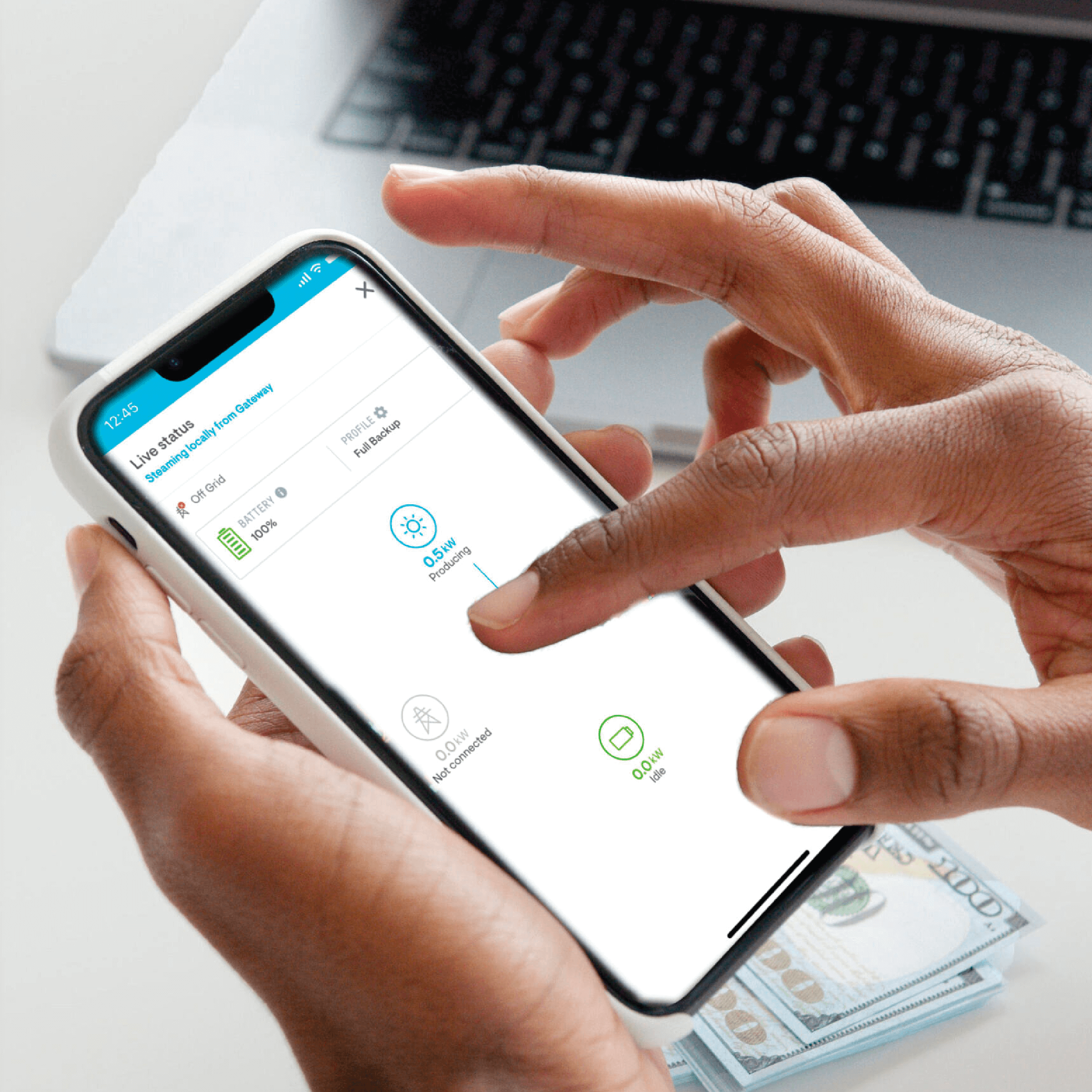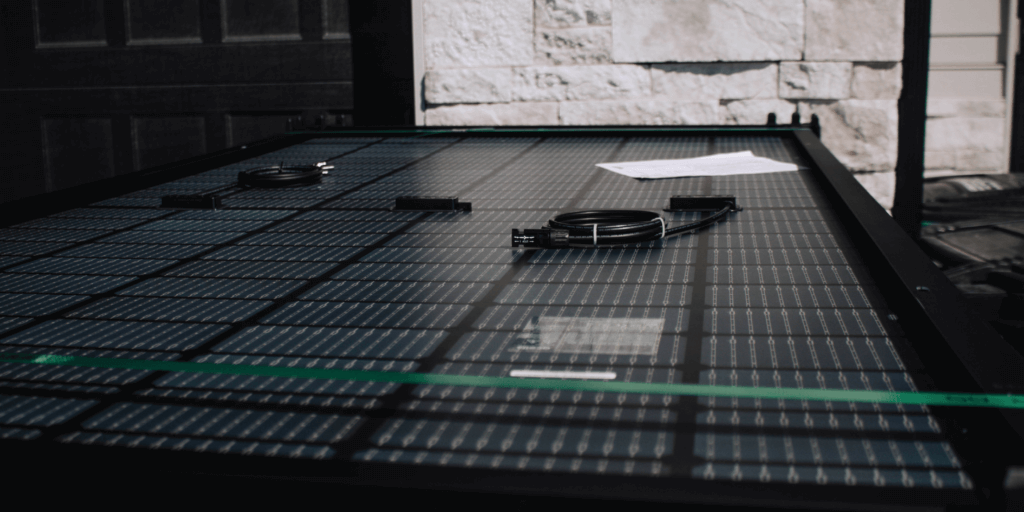

Two of the best reasons for switching to solar are its reliability as an energy source and its unobtrusive nature. With sunlight hitting your panels, you will benefit from clean, green energy which saves you money each month and boosts the value of your house—while only taking up space on your roof.
The sturdy, multi-layer design and modular electrical layout of a solar system lets you generate your own energy without requiring more than an annual check-in on the equipment. However, the out-of-the-way nature of a solar system can make it difficult to determine when there is a problem and diagnose the issue. If your solar system is not functioning as it should, there are rarely obvious, outward signs to identify a clear solution.
However, the correct resources and information can help you identify issues when you suspect a problem with your solar panels or production.
Your Solar System’s Modules and Other Hardware
While you don’t need to be an electrician or solar expert, it helps to understand the basics of your system. With some knowledge about your equipment, you can better determine if your solar panels are working correctly or if you’re experiencing an issue.
A solar module is a collection of individual solar cells layered together into a cohesive panel. In fact, the terms solar module and solar panel are frequently interchanged. A photovoltaic (PV) panel is the most visible portion of your solar system, and it’s the most likely piece to face inclement weather such as rain and snow. Each solar panel is made of a sturdy layer of these solar cells surrounded by glass or plastic and a protective frame to help support several in a cohesive solar system.
Your panels are expertly installed on your rooftop by trained professionals, with a support structure designed to help stabilize the system without compromising the strength of your roof and shingles.
From your panels, wiring is routed to your inverter. The inverter takes the direct current (DC) your solar panels produce and turns it into an alternating current (AC), which all of the electrical devices in your home can use. This AC travels through your home’s electric meter, allowing your utility company to track your generation and power usage.
From the solar panels, to the inverter, through the meter, there are a few distinct pieces of hardware connected by wiring to facilitate your solar panel power generation. If any of this hardware performs insufficiently, you’ll see the change in a decrease in your energy production—which may increase your power bill.
At Blue Raven Solar, we don’t recommend gauging the strength of your solar panel system based on your bill. If your solar panels are not working, we prefer you know and have the help you need. There are other tools at your disposal and signs to look for when you need to know if your solar panels are working.

Tracking Your Power Generation Through the Enphase App
Alongside your solar panels, you’ll be prompted to install the Enphase app when your solar system is energized. Enphase is a program designed to provide you with rapid reporting on your solar system’s energy generation. From the palm of your hand, you can:
- Monitor your energy production and usage
- See trends in your system’s performance
- View your solar panels and batteries
- Manage and control your system
Within the Status tab, you can see a snapshot of how your energy is being used. Many solar production apps provide updates every 15 minutes, but Enphase displays how much energy is traveling through your system and to where with updates every second. You can see how much your solar panels are generating during sunlight hours and how much your home is drawing from your solar battery backups at night. You can also see how much energy you’re still pulling from the grid.
In the Energy tab, you can see a longer perspective on your production, highlighting system performance over days and weeks. This can help estimate the Currency Equivalent, or approximately how much money you will spend or credits you will earn through net metering agreements in your state.
This reliable reporting is one of the quickest ways to spot whether your solar panels are working or not. The app can tell you if your solar system is not generating at all due to a malfunction in the inverter or solar meter. However, if a few solar cells aren’t producing well or an entire panel is not working due to a wiring malfunction, you may notice a deficit on a day-to-day or week-to-week basis—especially if you compare previous months where everything was working well.
Signs of Suboptimal Generation
Once you notice a decrease in your expected power generation, you can double-check whether or not environmental factors are impacting your solar system. These may include:
Unwanted Shade
Any trees you or your neighbors have may adversely impact your solar generation at certain times of the day. When you install a solar panel system, you may wish to look into solar easement agreements to help secure your rights to sunlight at the most productive angles.
Cloudy or Stormy Weather
If you live in an area with frequent clouds or storms, such as the Pacific Northwest or Southeast, it can be difficult to pin down an average energy output. It may be wise to double-check the system’s performance, but an overcast day may limit production.
Dust and Debris
After a storm, you may find branches or other windswept debris has piled up on your panels or even loosened the wiring. It is important to be careful when removing any items from your roof or panels. If you hire professionals to help, they may identify if the debris shifted or disrupted any of the hardware.
Dust may also build up on the solar panels, which blocks the sun’s rays and lowers your power production. You should not need to clean your solar panels every day, but when maintaining your solar panels, we recommend cleaning them 1-2 times a year.
Signs of Damaged Solar Panels
As we mentioned before, solar panels are built to be sturdy and last for decades. Signs of damage may be difficult to see from the ground or they may be internal.
When you check your solar panels, look for anything out of the ordinary or out of place. Solar cells are a distinct size and shape, and each one should look the same. If your glass is chipped or cracked, you may experience lower efficiency in the cells beneath the crack.
If a panel is out of alignment with other panels, it may have been knocked out of position by something—indicating a blunt force hit, which might have damaged internal hardware.
Any one of these signs is a reason to contact Blue Raven Solar’s customer service line at 1-800-377-4480 or support@blueravensolar.com. We can help determine the best way to troubleshoot the issue and reference your protections to keep your solar panels working efficiently and within warranty.

Blue Raven Solar’s Protections
Once you determine your solar panels are not working, there are many options available to you including our manufacturer warranty, workmanship guarantee, and production guarantee.
When your solar energy system is installed by Blue Raven Solar, you receive a 25-year manufacturer warranty. Issues specifically related to the hardware may be covered by this warranty.
If your solar panels are not working properly due to installation issues, our 10-year workmanship warranty will cover any needed repairs.
Our production guarantee is one of the most important protections you have within the first two years of your solar system installation. We estimate how much energy your system will generate and if you find your monthly power production does not fall in line with the estimate, we’ll happily investigate the problem to get your solar panels back to our originally estimated efficiency.
Solar Today for a Secure and Reliable Tomorrow
Whether you’re investigating if your home could benefit from rooftop solar or you’re looking to ensure your installed solar panels produce well for years to come, Blue Raven Solar is here to support and inform you through any questions you may have.
Feel free to reach out for a free savings estimate or contact our dedicated customer service team.



Sorry, the comment form is closed at this time.